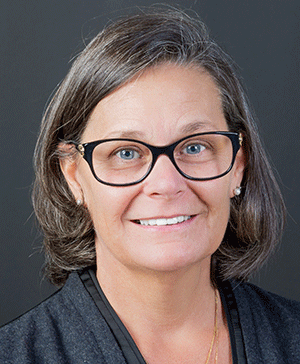NCART role ‘speaks to’ Julie Piriano ‘All the things are in place to swing the pendulum in one direction and yet we continue to struggle to get people what they n

By Liz Beaulieu, Editor
Updated 10:09 AM CDT, Fri June 7, 2024
 WASHINGTON – Julie Piriano’s new role at NCART gives the veteran of the complex rehab industry the ability to dedicate 100% of her time to “fighting the fight” to improve access to products and services.
WASHINGTON – Julie Piriano’s new role at NCART gives the veteran of the complex rehab industry the ability to dedicate 100% of her time to “fighting the fight” to improve access to products and services.
Piriano, who spent 16 years at Pride Mobility Products, was named senior director of payer relations & regulatory affairs for NCART in May.
“I wasn’t looking for a change; I was very happy with where I was and what I was doing,” she said. “I had the great fortune of being able to do industry affairs at Pride, but I had other responsibilities, too, so I couldn’t fully commit to it. When I saw the post for (the NCART position), it spoke to me as a way to meet my end-of-career goals to make a difference in a different and impactful way and dedicate myself full time to fighting the fight.”
Here’s what Piriano, a physical therapist who is also a member of RESNA’s board of directors, had to say about how the complex rehab industry has come so far but still has so far to go.
HME News: Why did you feel it was so important to dedicate yourself full time to improving access to complex rehab products and services?
Julie Piriano: Over the course of my 40 years in the industry, there have been significant changes in product design and development. There’s been research that supports and validates everything that we know in our gut makes a difference in the daily lives of the people we serve. Our efforts to educate and share knowledge, including through certification, have drastically improved. All the things are in place to swing the pendulum in one direction and yet we continue to struggle to get people what they need. It’s just crazy.
HME: Where will you focus your efforts at NCART to improve access?
Piriano: Right now, it’s all about learning what the top issues are in the provider community, and I say that because everyone is fighting their fights right now, whether it’s a large, regional or local provider. When you’re doing that, along with the costs associated with it, you can feel like your own island, and you’re not be able to recognize the issues are global issues. If we can come together and understand what those issues are and what we can do stepwise to address them, this industry has shown, time and time again, what it can accomplish.
Comments